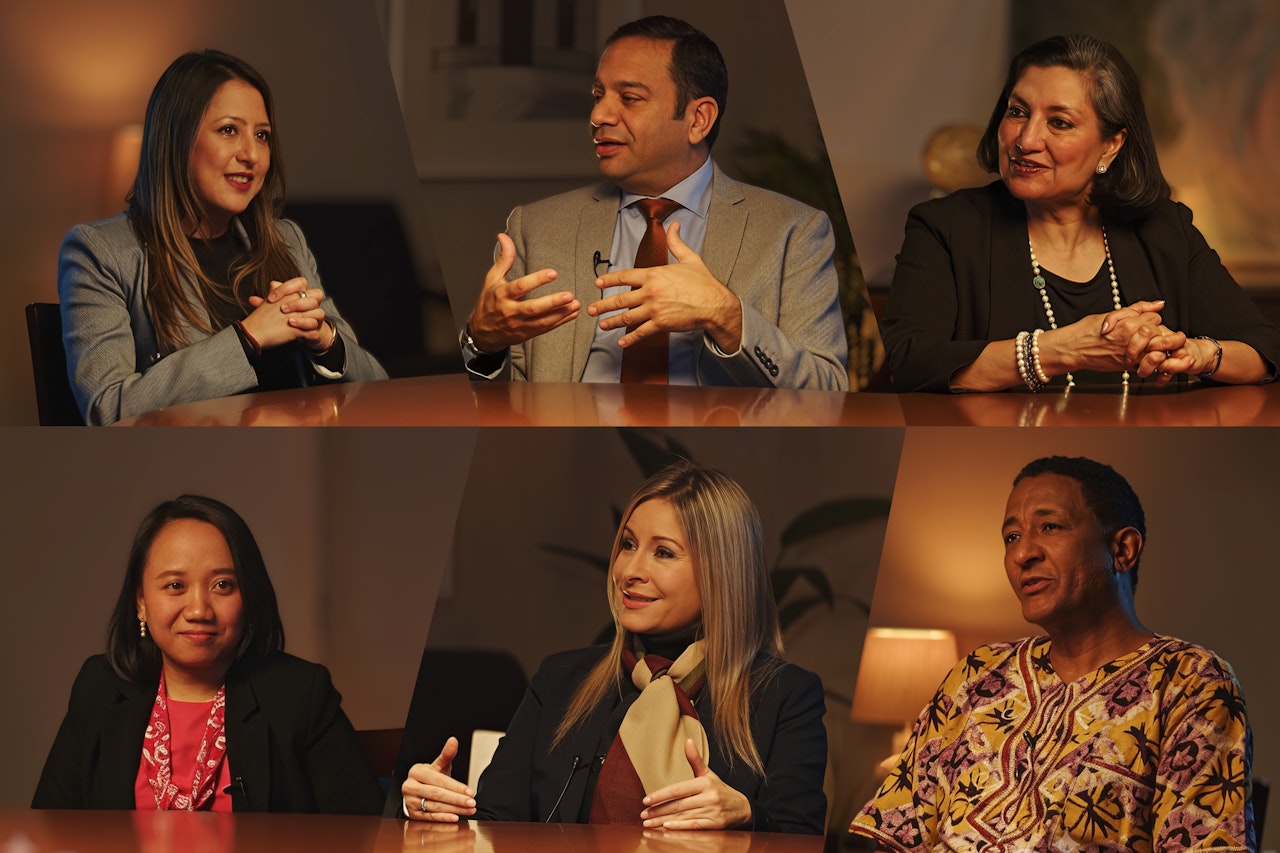
InConversation
BIC explores oneness and interdependence in governance
The latest podcast episode from the News Service explores the need for governance that recognizes humanity as an interdependent whole rather than competing units.

The latest podcast episode from the News Service explores the need for governance that recognizes humanity as an interdependent whole rather than competing units.
BAHÁ’Í WORLD CENTRE — What if addressing the world’s most pressing challenges—from climate change to extreme economic inequality—requires not only resources and knowledge, but fundamentally reimagining the organizing principles that guide international cooperation?
A new podcast episode from the Bahá’í World News Service explores this fundamental challenge, featuring representatives of the Bahá’í International Community (BIC) in Addis Ababa, Brussels, Cairo, Geneva, Jakarta, and New York.
Bani Dugal from the BIC’s New York Office highlights the Bahá’í community’s long-standing participation in the discourse on global governance, noting a recent BIC statement, “Embracing Interdependence: Foundations for a World in Transition,” shared at the UN Summit of the Future. This statement, she explains, invites the international community “to reconsider the organizing principle of the oneness of humanity. We believe that without this principle at the center of any governing system... we will not be able to have peace and security in the world.”
Rachel Bayani from the Brussels Office elaborates on how this principle challenges prevailing assumptions about international relations. Rather than viewing humanity as individuals with competing interests, she says, the Bahá’í perspective sees “humanity as one single unit... where the well-being of one part of the world is contingent upon that of the whole. Whatever system that is going to be put into place must be designed jointly by everyone.”
The conversation reveals how current approaches to governance often undermine their own goals. Well-intentioned climate policies adopted in one region, for example, can severely impact agricultural sectors elsewhere when developed without considering global interconnectedness.
This understanding, participants suggest, calls for a fundamental re-evaluation of concepts such as power. Simin Fahandej from the Geneva Office contrasts the common view of power as “dominance..., competition..., and superiority” with a vision where power represents “the ability to release the capacity of humanity..., to release the power of love, and the power of unity.”
Hatem El-Hady from the Cairo Office elaborates on the need to question fundamental assumptions. “We have to re-examine all the paradigms that have brought us this far,” he said, pointing to global conflicts as evidence of failing systems. “Until we start to think about our unity as a fundamental principle and our common identity as noble human beings... we cannot see one part of the world being prosperous and comfortable and the rest of the world not.”
Solomon Belay from the Addis Ababa Office describes how discussion needs to move beyond theoretical frameworks to addressing practical governance challenges. He explains that numerous charters and conventions among African nations remain unimplemented due to narrow conceptions of national sovereignty that prioritize individual state interests over collective progress.
The conversation highlighted how essential consultation is to effective governance—not as negotiation between predetermined positions, but as collaborative examination of reality. “Consultation is a means to allow us to achieve our collective purpose,” notes Desytia Nawris from Jakarta.
The podcast suggests that lasting peace requires more than the absence of conflict—it demands governance systems that channel humanity’s capacity for cooperation rather than competition, guided by recognition of our shared spiritual nature.
The podcast episode is part of the “In Conversation” series, a collective exploration of the practical application of Bahá’í principles to the building of peaceful societies.